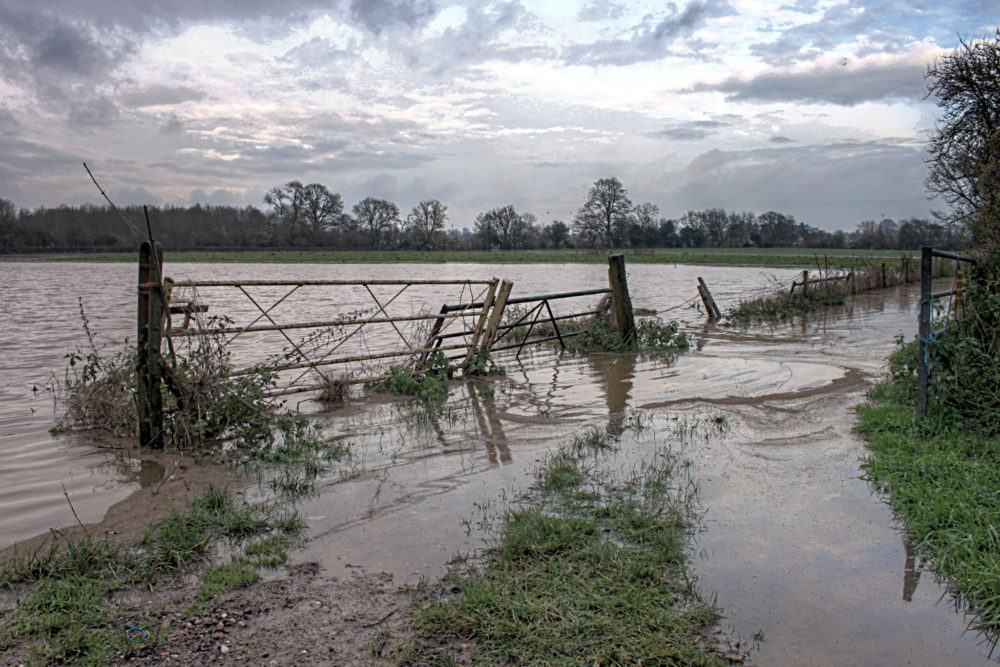Delay to Sustainable Farm Scheme in Wales is ‘bad news for farmers and nature’ according to charity

Wildlife Trusts Wales has reacted to the Welsh Government’s announcement that the Sustainable Farming Scheme has been delayed, calling it “bad news for farmers, nature and climate”.
Speaking at a press conference at Sealands Farm in Bridgend on Tuesday (May 14), Huw Irranca-Davies said that the change of timings was part of his “commitment to meaningful engagement with the farming sector”.
He said: “Since the first day of taking up this role I have been out and about meeting and listening to our farmers, hearing their views and taking on board what they have to say.
“My commitment to meaningful engagement with the farming sector, Plaid Cymru colleagues under the Cooperation Agreement and other stakeholders on the changes needed will necessitate a change in the implementation timetable.
“We have always said the scheme would not be introduced until it is ready and I stand by that.”
The government says the new timeframe will give the opportunity to work through a number of important aspects.
“Viable future”
In a news post shared to their followers, the Wildlife Trust maintain that “The post-Brexit farm payment scheme offers a once-in-a-lifetime opportunity to put farming in Wales on a sound sustainable footing to address the interlinked climate and nature crises and ensure a viable future for Welsh farming.”
The post added: “The decision to delay the scheme comes at a time when Welsh farmers are suffering from the effects of months of heavy rain. This is placing farm businesses under increasing strain, which will only get worse as our climate changes.
Risk
The UK Government’s 2021 Food Security Report found that, “the biggest medium to long term risk to the UK’s domestic production comes from climate change and other environmental pressures like soil degradation, water quality and biodiversity.”
Rachel Sharp, Director of Wildlife Trusts Wales said: “The decision to delay the scheme simply prolongs the uncertainty at a time when farmers need to be rewarded for switching to sustainable farming methods which will benefit their businesses in the future.
“Delaying measures to help farms adapt to our changing climate now only increases costs tomorrow and so is bad news for farm incomes.
“The scheme offers a great opportunity for farmers to be on the front foot to address the changing weather – to plant trees for shelter for livestock, to switch to herb-rich grasses which are less prone to drought, and to store water in ponds on farms.
“It’s clear that the current food system isn’t working for farmers, nature, climate and even consumers. We see nature in rapid decline on some farmland, rivers polluted from agricultural run-off and many farmers struggling to make their businesses viable.
“Although the extra year will give further time for farmers’ concerns to be heard, it is vital to be lead by science.”
“Critical time”
Wildlife Trusts Wales shared that most Welsh farms already have 6% tree cover and so do not have far to go to meet the proposals to reach 10% under the new scheme – trees benefit the farm through providing shelter for livestock, protect soil and to soak up flood waters. These areas do not have to come out of production because grazing beneath the trees is allowed.
Rachel Sharp continued: “It is a critical time for farming in Wales and it’s important that the new scheme is adequately funded. We need to see the whole scheme rolled out in 2026 as farmers need clarity on all tiers of the scheme including the ‘Options’ and ‘Collaborative’ tiers.
“Farmers need to know what payment rates will be available to plan for their business. This year will be critical and piloting new approaches is needed so that farmers can see what the new scheme looks and feels like.
“As 90% of Wales is farmland there is huge potential to harness nature to help store carbon and to hold back flood waters in revitalised natural habitats and to mitigate the impacts of climate change for the people of Wales.
“This would then demonstrate the value of giving taxpayers’ money to farmers for public benefits that, in turn, support rural communities.”
According to the Wildlife Trusts, nature is continuing to decline at an alarming rate across Wales, which is already one of the most nature-depleted countries in the world.
18% (one in six) of species are at risk of extinction from Wales. The abundance of land and freshwater species has on average fallen by 20% across Wales since 1994.
Support our Nation today
For the price of a cup of coffee a month you can help us create an independent, not-for-profit, national news service for the people of Wales, by the people of Wales.






Rachel is right. The only people a delay helps are big agri polluters and climate change deniers like the ‘No Farmers No Food’ campaign.
This is the correct decision, under the circumstances, we do not want a repeat of the Glastir fiasco where there were three reviews before there was a substantial uptake of the scheme! Maybe the Wildlife Trust does not realise the success of this scheme is make or break for many family farms There are two counties i Cymru, namely Caerfyrddin and Meirionnydd, where some farms have been managed under environmental schemes for over thirty years. Maybe the Wildlife Trust could be of assistance to Llywodraeth Cymru during this next year and conduct a survey of these areas to see if… Read more »
Rachel Sharp is not Director of Wildlife Trusts Wales as this report claims. WTW was wound up over a year ago. It has been absorbed into the Royal Society of Wildlife Trusts based in Nottinghamshire and all funds held transferred to them. She may, however, be an employee of them reporting to their headquarters in England.